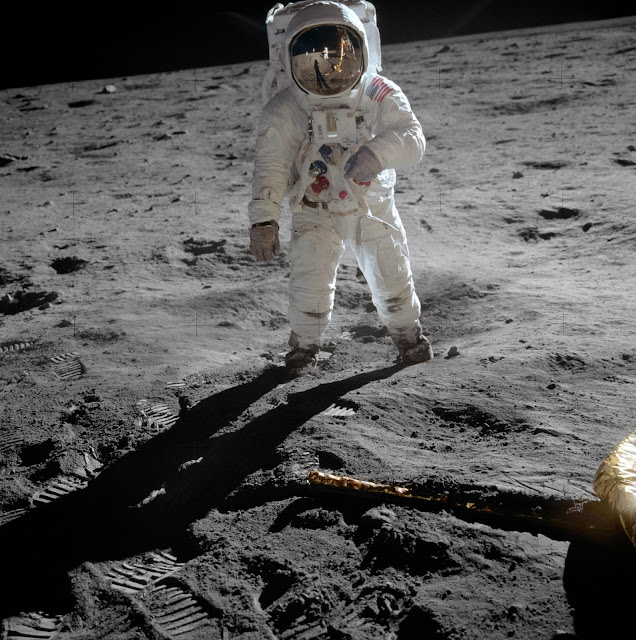That guy up there is Markus Persson, better known by his alias, "Notch." In May of 2009, Notch went to the forums of TIGSource, a meeting place for indie game developers and players. He'd been working on a new concept, inspired by Dwarf Fortress and Infiniminer, and he had a working build ready for feedback. It was rudimentary at best -- you had an infinite number of blocks and a small area to work in, and the point was to just...go to town building whatever you wanted.
 |
| BUT WAT ABOUT MY GRAFIX? |
But goddamn, was that promising. People got excited. They built statues, pixel art, the U.S.S. friggin' Enterprise, and whatever else came to mind. When they built something, they became proud and shared it with their friends. Word started to spread. This early version of Notch's vision came to be known as Minecraft Classic. Within a year, Indev (short for "in development") followed, bringing with it key features that would catapult Minecraft into the legendary role it plays today.
 |
| Like mining. And crafting. |
I first learned of Minecraft around this time. I saw an introductory video from YouTube gamer SeaNanners, wherein he showcased the early crafting process. First, he punched a tree to get a log. Then, he used the crafting menu to turn the log into planks, which he used to build a crafting table. This gave him a 3x3 grid rather than a 2x2 grid. Then, he turned some of the planks into sticks, formed tools in the grid with sticks and planks, and I gasped aloud. The implications of this system were immediately apparent to me, and I purchased the game the moment the video ended.
 |
| Artist's rendition |
What Minecraft offers is nearly infinite creativity with a side of adventure. There are monsters, and you can deal with them by creating, not just taking what the developer gives you and clicking until they die. You build your base. You build your weapons. You build your armor. You mine your own resources. It's the purest form of a video game sandbox that has ever been. Word of the game spread like wildfire as players shared their creations and experiences.
 |
| Which, let's be honest, were inevitably phallic in nature. |
Meanwhile, Notch quit his day job and formed a company called Mojang. Continued success meant he could hire more programmers to add features and hammer out bugs. Groundbreaking success meant he could hand over the reins to said programmers and start working on other projects.
When I say "groundbreaking," I want you to understand just how much I mean it. As of this month, Minecraft is the single best selling PC game of all time. It sold more than the notoriously addictive World of Warcraft. More than Starcraft, which launched an entirely new genre of spectator sports. Across all platforms, Minecraft (so far) is the third best selling video game of all time. It's behind Wii Sports (whose numbers aren't going anywhere anymore) and freaking Tetris. It's sold more copies that Super goddamn Mario Brothers, which was bundled with the NES (the system that singlehandedly pulled the game industry out of the abyss).
 |
| Nintendo's role is not lost on Minecrafters |
Thanks to Minecraft, YouTube went from a hub of cat videos to a hub of Let's Play videos about Minecraft. It launched incredibly successful careers for people who now spend their days recording and editing their own gameplay videos. It is impossible to overstate just how monumentally Minecraft altered the gaming landscape. And it all started with just...a guy. For fun.
Holy shit.



_poster.jpg)






























.jpg)








